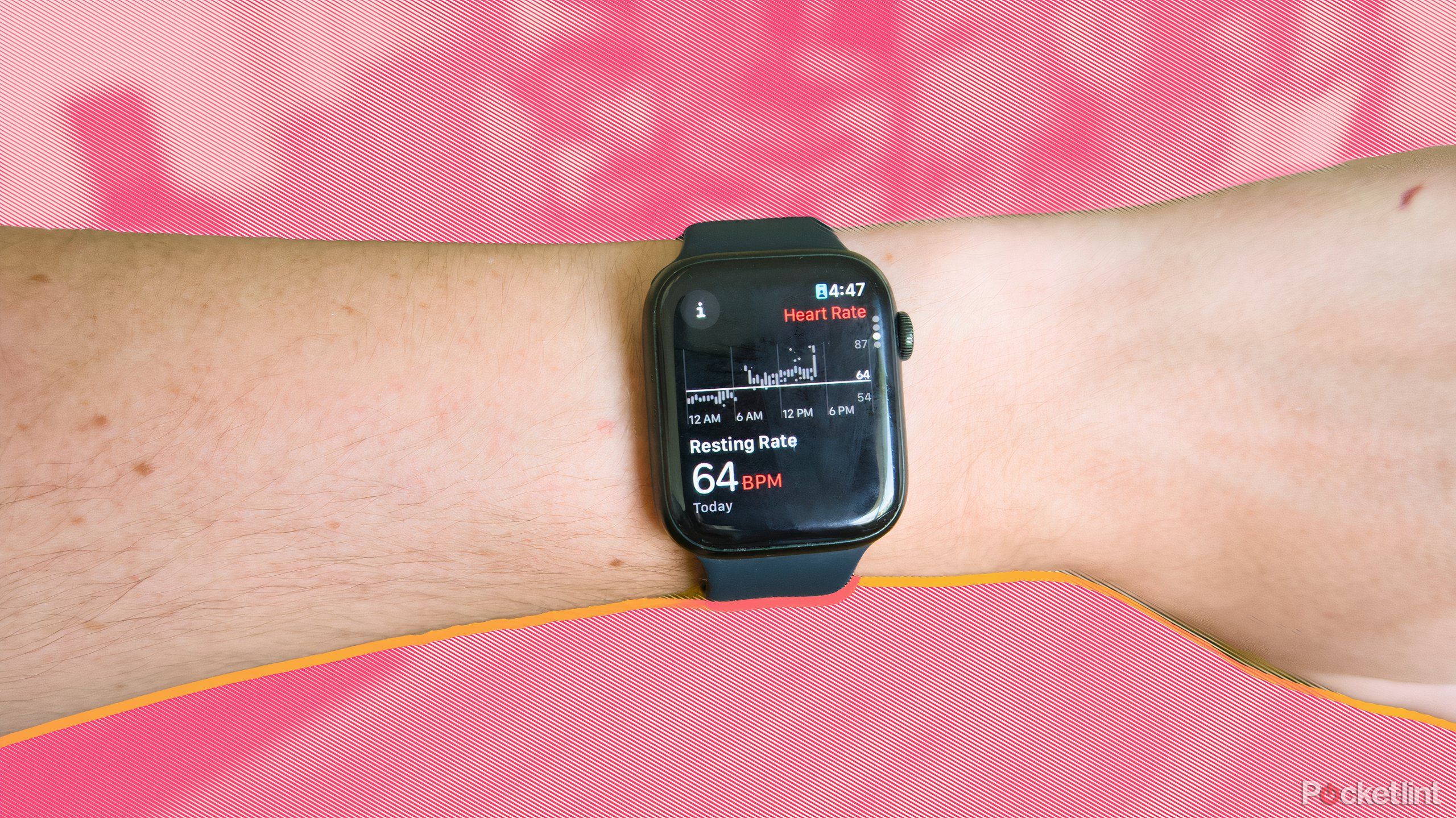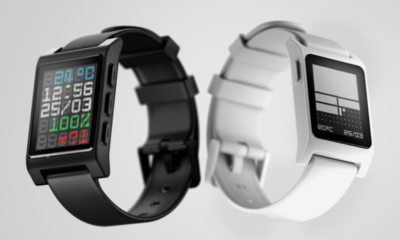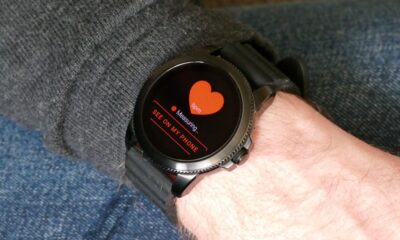Gadgets
A new study may have found a link between smartwatches and anxiety

Key Takeaways
- A study from the Journal of the American Heart Association identified an association between smartwatches and anxious patients.
- AFib patients with wearables were more preoccupied with symptoms and used healthcare services more often.
- More education is needed on smartwatches and the psychological impact they can have on users.
It’s no secret that Apple sells the Apple Watch based in part on its life-saving abilities. In at least two different ads, the company has suggested, not at all discreetly, that if people weren’t wearing an Apple Watch they would have died.
Features like automatically calling emergency services after a car crash or a fall go a long way towards keeping people safe, but the preventative health features for identifying chronic cardiovascular health problems can be just as much, if not more impactful, and they’ve proliferated across the smartwatch landscape since Apple started pushing them.
“Wearable Devices, Health Care Use, and Psychological Well‐Being in Patients With Atrial Fibrillation,” a new study published in the Journal of the American Heart Association found that widespread wearable use might not only be a positive thing, however. In particular, for patients with atrial fibrillation (AFib), an irregular heartbeat in the upper chambers of the heart, wearing a smartwatch may even increase the stress and anxiety caused by their condition, and put even greater demands on the healthcare system.
Related
What is heart rate variability (HRV) and how do you measure it on Apple Watch?
Heart rate variability can be impacted by stress, fitness, or health. Here’s how to track it on your Apple Watch.
Sorting through the data
What do you do with all the things your watch tells you?
Apple
The amount of raw data smartwatches collect naturally leads to questions, according to Lindsey Rosman, Ph.D, one of the researchers behind the study and an Assistant Professor of Medicine in the Division of Cardiology at the University of North Carolina School of Medicine.
“I have a clinic one day per week where I see patients who are referred to me from our cardiology providers. And over the course of several years, we just kept noticing that folks were coming in with lots of questions and lots of concerns about information they were getting from their wearable devices,” Dr. Rosman says.
Those concerned patients led Dr. Rosman and her colleagues to conduct a case study investigating the issue, which revealed a similar trend. “So we wanted to get a bigger sample and better understand whether folks who use wearables may have more anxiety about their heart and their device than folks who aren’t using wearables,” she says.
Smartwatches provide a lot of information with little context, something that itself can be stressful, and according to Dr. Rosman, “patients with cardiovascular conditions have a higher rate of anxiety than people who don’t have a cardiovascular condition.” Explaining what could be causing that stress and anxiety makes it easier to avoid, and could prevent putting even more demands on the healthcare system helping these patients.

Related
What is Apple Watch ECG? Advice to set up your heart health features
Everything you need to know about Apple’s ECG heart feature, including its limitations.
Connecting smartwatch ownership to healthcare use
The study Dr. Rosman and her colleagues constructed ultimately connected information from electronic health records (EHR) and multiple surveys and questionnaires to analyze 172 different AFib patients, 83 of which owned and or used a smartwatch.
How these patients were accessing and using the healthcare system both formally (appointments, procedures, etc.) and informally (patient portal messages, doctor calls, etc.), along with a psychological profile were established, and statistical analysis was applied to the results.
Patients who had wearables were also found to be more concerned about the treatment they were receiving for AFib in general.
Using the survey data, Dr. Rosman’s team was able to identify when a smartwatch was purchased and how a patient’s healthcare usage changed after they started using a watch. There are some limitations, of course: The reason why these patients purchased a wearable in the first place is unknown and there could be selection bias in the sense that the study included wearable users who might have already been overly concerned with their heart. But the findings published in the study are still illuminating.
How these patients were accessing and using the healthcare system both formally (appointments, procedures, etc.) and informally (patient portal messages, doctor calls, etc.), along with a psychological profile were established, and statistical analysis was applied to the results.

Related
4 Apple Health app features you don’t need a smartwatch for
An Apple Watch isn’t the only way Apple users can track and develop healthy habits. This built-in iPhone app is effective and easy to use.
Wearable users were also far more likely to use informal healthcare resources, including sending significantly more messages to their healthcare providers than patients without wearables. According to Dr. Rosman, those kinds of messages and calls “can be very time-consuming for providers and are typically not reimbursable hours.” That kind of extra work can have a significant impact on doctors and contribute to higher levels of burnout over time.
-

 Destination8 months ago
Destination8 months agoSingapore Airlines CEO set to join board of Air India, BA News, BA
-

 Breaking News10 months ago
Breaking News10 months agoCroatia to reintroduce compulsory military draft as regional tensions soar
-

 Gadgets4 months ago
Gadgets4 months agoSupernatural Season 16 Revival News, Cast, Plot and Release Date
-

 Tech News1 year ago
Tech News1 year agoBangladeshi police agents accused of selling citizens’ personal information on Telegram
-

 Productivity12 months ago
Productivity12 months agoHow Your Contact Center Can Become A Customer Engagement Center
-

 Gadgets4 weeks ago
Gadgets4 weeks agoFallout Season 2 Potential Release Date, Cast, Plot and News
-

 Breaking News10 months ago
Breaking News10 months agoBangladesh crisis: Refaat Ahmed sworn in as Bangladesh’s new chief justice
-

 Toys12 months ago
Toys12 months ago15 of the Best Trike & Tricycles Mums Recommend
























